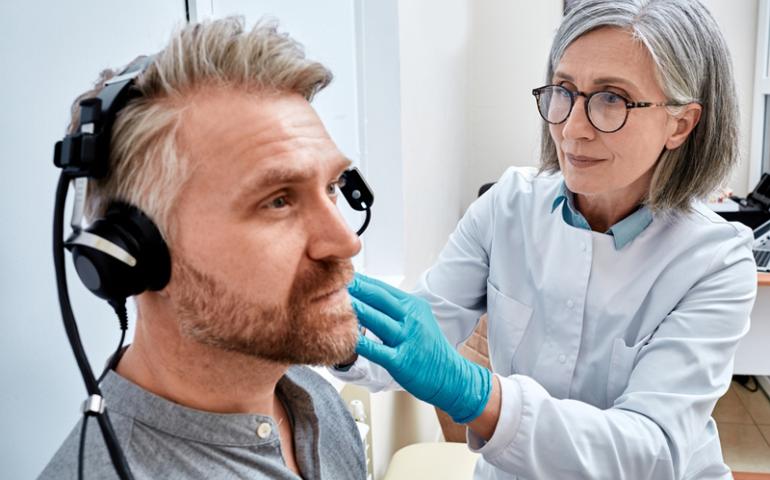Is Hearing Loss Considered a Genetic Condition?
Hearing loss is a prevalent health concern affecting millions of people worldwide. There are many things that cause hearing loss, like loud noises, aging, and illnesses. Unfortunately, genetics also play a significant role in this condition. In this blog, we delve into the topic of genetic hearing loss. We discuss its common causes, testing methods, and management strategies.
Common Causes of Hearing Loss
- Hearing loss can result from a combination of genetic and environmental factors.
- Age-related hearing loss. Also known as presbycusis, this type of hearing loss occurs over time as a person gets older. While it is often influenced by the aging process, genetic factors can cause it to progress.
- Noise-induced hearing loss. Exposure to loud noises can damage the delicate structures of the inner ear. Genetic susceptibility to noise-induced hearing loss can vary among individuals.
- Ototoxic medications. Certain medications, like antibiotics and chemotherapy drugs, can damage the auditory system. This can lead to hearing loss. Genetic factors can influence if a person will experience hearing loss from medications.
Genetic Hearing Loss
Genetic hearing loss occurs when there are changes or mutations in a person's genes. These changes affect that person's ability to hear. You can inherit it from one or both parents. It can also occur out of the blue due to new genetic mutations. There are two main types of genetic hearing loss.
Syndromic hearing loss occurs in conjunction with other medical conditions or abnormalities. It can be due to Usher syndrome, Waardenburg syndrome, or Pendred syndrome. Non-syndromic hearing loss is not associated with other medical conditions. It can be either autosomal dominant meaning it's inherited from one affected parent. It could be autosomal recessive, meaning it's inherited from both parents). It could also be X-linked, meaning it's inherited from the mother who carries the mutated gene.
Testing for Genetic Hearing Loss
Early identification of genetic hearing loss is crucial for appropriate management and intervention. Doctors can use many different methods to diagnose genetic hearing loss. DNA analysis can identify specific genetic mutations associated with hearing loss. This test helps determine the type, severity, and progression of hearing loss. These results provide doctors with valuable information for genetic counseling.
Audiological evaluations are another method doctors use to diagnose genetic hearing loss. The most common tests include pure-tone audiometry, speech audiometry, and other hearing-related tests. These evaluations can help identify whether genetic factors contribute to hearing loss.
Managing Genetic Hearing Loss
Unfortunately, you cannot reverse genetic hearing loss. But, there are various management strategies that can help. These can improve communication and enhance the quality of life. Here are some effective approaches to try if you have genetic hearing loss.
- Hearing Aids. Hearing aids amplify sounds and enhance speech perception for individuals with hearing loss. Modern hearing aids come with advanced features. Popular ones include background noise reduction, directional microphones, and connectivity options.
- Cochlear Implants. These devices are best for individuals with severe to profound hearing loss. These devices bypass damaged parts of the inner ear and stimulate the auditory nerve. They provide a sense of sound and can improve speech understanding.
- Assistive Listening Devices. You can use these devices with hearing aids or cochlear implants. Together, they improve hearing in specific situations, like classrooms or theaters.
Contact Us
Hearing loss can be due to genetic factors. This is why it's vital to know about the relationship between genetics and hearing loss. By knowing how your genetics can lead to hearing loss, you can keep a better eye on your hearing health. Those with genetic hearing loss can lead fulfilling lives if diagnosed and managed. If you would like to have your hearing tested, contact our office today! We offer comprehensive hearing evaluations for people of all ages.






